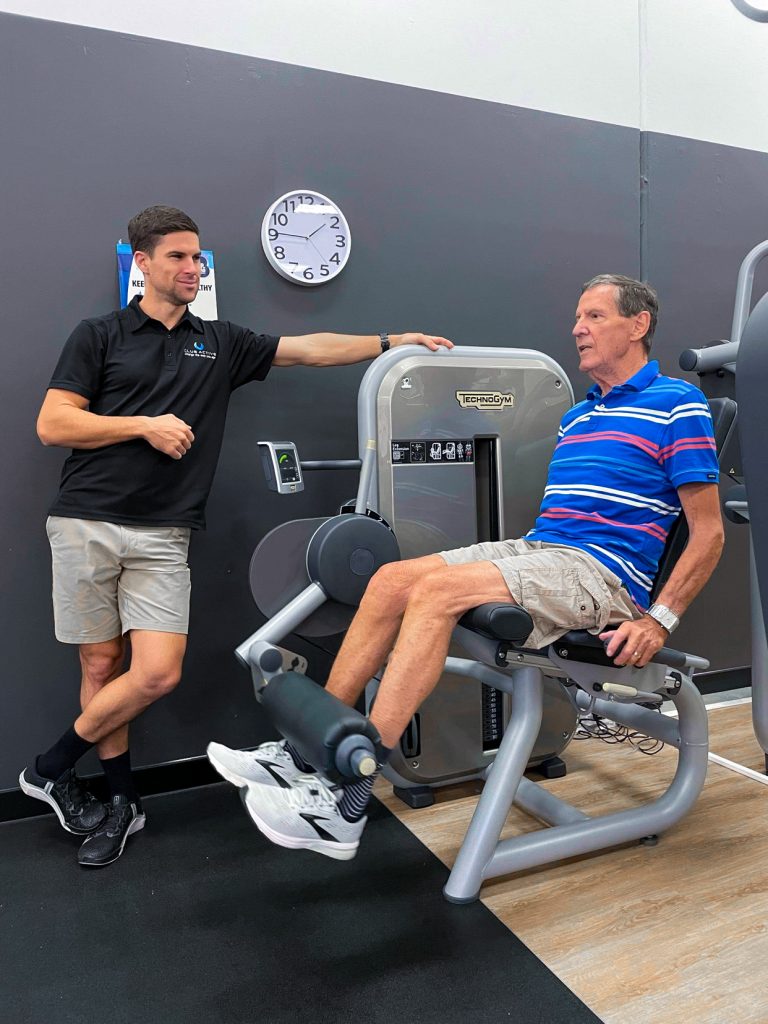What is Bariatric Surgery?
Bariatric surgery is surgery that affects the stomach and how food is digested. The surgery is designed to reduce the size of the stomach, decreasing one’s appetite and making a person feel full from smaller portions of food.
Bariatric Surgery is an effective way to help lose excess body weight. The effectiveness of the surgery can be increased by implementing lifestyle changes BEFORE and AFTER your operation. Club Active exercise physiologists have outlined the major benefits to exercise rehabilitation and key exercise guidelines which should be implemented pre and post-surgery to maximise your recovery!
The importance of PRE-OPERATIVE exercise intervention
Physical activity is a simple and effective way to prepare your body for surgery and has been shown to help in increasing the rehabilitation process after a procedure. Exercising on a consistent basis prior to bariatric surgery has also been linked to greater adherence in physical activity participation post-surgery.
Major benefits of pre-operative exercise include:
- Reduction in total body weight prior to surgery
- Reduced risk of surgical complications
- Increased recovery rate after surgery
- Improved self-esteem levels
Pre-operative exercise guidelines
Aerobic Exercise:
Aerobic exercise prior to surgery has been shown to have a beneficial effect on a patient’s cardiorespiratory fitness and VO2max (aerobic capacity) levels at 3, 6, and 12 months pre-surgery. The increase in aerobic fitness can also aid in the recovery rate due to the improvements in heart function.
- 30 minutes of aerobic exercise (55-85% of heart rate reserve)
- 3 to 5 sessions per week
- Walking, swimming, gentle aerobics, cycling, or hydrotherapy are all great ways to increase your cardiorespiratory fitness
Resistance Training:
Strength training is important for many reasons prior to surgery. Not only can it improve the body’s ability to heal from the procedure, but it is also widely recognised as an effective intervention against other obesity-related disorders. These include metabolic conditions such as Type II Diabetes and Hyperlipidaemia as well as degenerative conditions like osteoarthritis.
- 20 to 30 minutes of resistance-based-training
- 2 to 3 sessions per week
- Light to moderate intensity
The importance of POST-OPERATIVE exercise intervention:
The effectiveness of the surgery can be increased by also implementing lifestyle changes AFTER your operation.
Incorporating both aerobic and resistance-based training into your new lifestyle will be important in maximising the results of surgery. Although a reduction in weight is expected, an increased drop in body mass index (BMI) levels after 12 months have been shown to be greater in individuals who participated inconsistent exercise training post-surgery.
Post-operative body changes
Sudden weight reduction can decrease calcium absorption in the body, leading to a decrease in bone density. Post surgically, rapid weight loss of 50kg is not uncommon among successful bariatric patients. This combined with restricted caloric intake and decreased calcium absorption can increase the risk of developing bone conditions such as osteoporosis and joint pain. Lifting weights can help maintain and decrease the risk of developing these conditions, which can lead to further problems like osteoporosis fractures, and falls.
Major benefits of post-operative exercise include:
- Greater reduction in total body weight
- Reduced risk of surgical complications
- Faster recovery rate after surgery
- Increase in lean muscle mass
- Improved joint health
Post-operative exercise guidelines
1 – 4 weeks:
- Focus on rest
- Minimal, gentle exercise is recommended
4 – 6 weeks:
- Increase aerobic activity (walking, swimming, gentle aerobics)
- Bodyweight strength work (light)
- Aim for 20 – 30 minutes per day or as tolerated
6+ weeks:
- Introduce resistance-based training
- 2 to 3 days per week
- 20 to 30 minutes or as tolerated
- Light to moderate intensity
- Avoid abdominal specific exercises until you are cleared by your surgeon
How can a Club Active Accredited Exercise Physiologist help?

——-
At Club Active, our university-trained exercise physiologists can help develop an exercise program specific to your pre and post-operative requirements. For Bariatric surgery, it is important to train appropriately before and after the surgery to ensure effective rehabilitation and maximise the success of your surgery. As everyone can experience the surgery differently, a tailored training program will ensure your unique symptoms and difficulties are taken into account!
To learn more about working with an Exercise Physiologist, please contact our friendly team today

